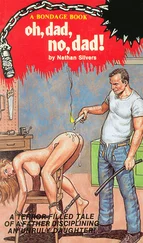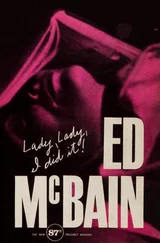Even Lissie’s initial disappointment over the New York reaction to her Indian merchandise proved to be temporary. She had cruised the shops along Lexington Avenue, had decided they were selling only stuff for plastic hippies, and had then walked down to Grand Central and shuttled over to Times Square, where she’d caught an express downtown. She was carrying a suitcase filled with items similar to the ones she herself was wearing (and still wearing at the dinner table that night as she related her story), an embroidered, long-sleeved blouse over her jeans, silver bangles, a mirrored vest, a turquoise necklace. The response had been the same all over the Village. She’d sold one or two items, but for the most part the shop owners had dealers with whom they did business regularly on a volume basis, and they weren’t interested in buying odds and ends from what one shopkeeper called “itinerant peddlers.”
Disappointed but undismayed, she left for Boston at the beginning of March, determined to sell her goods to the head shops in Cambridge.
The day was very cold, but she found herself working up a good sweat nonetheless as she carried the suitcase up the steps from the Harvard Square station, emerging from the kiosk into a wintry sunlight, blinking against it, zipping up her fighter-pilot’s jacket, and then beginning to walk up Mass Ave.
Her hope was to sell all the merchandise to a single shop, find a little place that specialized in fine imported stuff, unload all the goods at once, even if it meant making a smaller profit than a shop-by-shop, door-to-door sort of salesmanship might bring. The important thing was the turnaround. Make the small profit, send the money to Marjorie in India so she could buy more stuff this time, and then make a larger profit next time around because of the increased volume, and so on until they had a going business that would practically run itself.
But if she couldn’t find any one shop that would take all the stuff, there was really quite a variety, then she planned to lug this damn suitcase all over Boston, selling bits and pieces of the goods wherever she could, and unloading it all before she went home at the end of the—
“Carry your bag, honey?”
The voice startled her. She had been looking into the far distance, scanning the shop signs up the street, searching for a suitable prospect, and hadn’t noticed the young man who sidled up beside her and who was now reaching for the handle of her suitcase. She pulled away instinctively.
“Hey, come on,” he said, “lemmee hep you with that.”
He was tall and slender and black. He was wearing blue jeans, brown desert boots, and a brown leather car coat. A patch of black hair hung under his lower lip. Not quite a beard, it sat like a small upturned isosceles triangle pointing downward to a square chin. Above the hairy patch, his smile was a dazzling white.
“I can manage,” Lissie said.
“The name’s Sparky,” he said, grinning.
“Goodbye, Sparky,” she said, and he burst out laughing. “I mean it,” she said. “Disappear.”
“Ony want to hep you with your burden,” he said.
“I don’t need any help,” she said, and stopped before a shop window brimming with just the sort of merchandise she was carrying in the valise — a wide assortment of silver and turquoise jewelry, brass bells and bowls, leather sandals, pouches and belts, cotton shirts and vests, an Oriental bazaar right here in Cambridge.
“Gonna buy yourself some gear?” Sparky said.
Without answering, Lissie opened the door. A bell tinkled over it as she hefted her suitcase into the shop. Through the plate-glass window, she could see Sparky still standing there on the sidewalk, grinning in at her. She turned away from him abruptly. A pair of hanging green curtains at the rear of the shop parted, and a dumpy little bald-headed man stepped through them, beaming, his blue eyes twinkling in a moon face, a fringe of brown hair over each ear. As he approached her, she realized that the baldness and the roly-poly waddle created a mistaken impression of advanced age. He could not have been much older than Lissie herself, perhaps twenty-one or — two. He was wearing baggy brown pants and a long-sleeved, white shirt, the cuffs rolled up. A square, she thought. Running a head shop, no less.
“Hi,” she said, “I’m Melissa Croft, and I...”
“What are you selling, Melissa Craft?”
“Croft,” she said.
“Croft, Craft, let me hear it.”
His voice had a good rich timbre, surprising for someone so short — she guessed he was five eight, five nine, certainly no taller than that. She’d always associated deep voices with tall men, but maybe they came with the stout ones, too. He was definitely overweight.
“Who’s your friend outside with the evil eye?” he asked.
“I don’t know,” Lissie said. “He wanted to carry my bag.”
“He looks like a pimp.”
“That’s just what I thought.”
“Saw the suitcase, probably figured you stepped straight off a bus and headed for the street life in Cambridge.” He paused. “You didn’t step straight off a bus, did you?”
“No.”
“I didn’t think so. You’re selling something, am I right?”
“Right.”
“Are you selling what’s in my window?”
“Well, not exactly what’s in your wind—”
“But similar to what’s in my window?”
“Similar, yes.”
“I don’t want it.”
“Why not?”
“Because if you’re selling what’s not selling, why should I buy it?”
“I’ve got some beautiful stuff here,” Lissie said.
“Save your breath.”
“Don’t you even want to see it?”
“Is it from India?”
“Well... yes.”
“No way,” he said, and shook his head.
“Why? What’s wrong with Indian merchandise?”
“Nothing’s wrong with it.”
“Then why won’t you look at it?”
“You want to waste your time? Okay, open the bag, waste your time, show me the stuff.”
“What for? You said you won’t buy any of it.”
“I may buy some of it, okay? Out of pity, okay?”
“I don’t need pity.”
“What do you need? A cup of coffee? Come on, I’ll lock the shop and buy you a cup of coffee.”
She looked at him.
“What do you say?”
She kept looking at him.
“Fat men are very light on their feet,” he said, and grinned. “Terrific dancers,” he said, and snapped his fingers in the air on either side of his head, like a flamenco dancer. “Besides, if you have a cup of coffee with me, I’ll tell you why you’re going to have a hard time selling your stuff. Okay?”
“Deal,” she said, and nodded.
He extended his hand over the counter. “Matthew Hobbs,” he said, “nice to know you.” He came around the counter, and reached for a coat on a wall hook. “You can leave your bag here if you like,” he said.
Sparky was still waiting on the sidewalk outside. He glanced at Lissie as Matthew was locking the door, muttered, “Ain’t no accountin’ for taste,” and then put his hands in the pockets of the leather coat and went slouching off up the street, affecting the sort of cool, hunched-over, shit-kicking style the street-gang kids used to use back in the fifties.
At an espresso joint on Ellery Street, they sat close to a blazing fire and ordered two cappuccinos from a blond waitress wearing a black leotard. “Where are you from?” Matthew asked.
“Connecticut.”
“You don’t sound Connecticut.”
“What do I sound?”
“New York.”
“Well, I was born in New York. And grew up there, actually.”
Читать дальше












